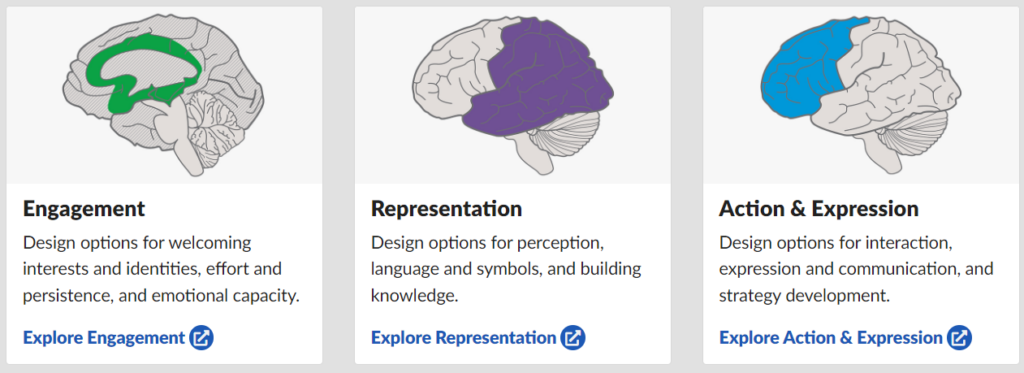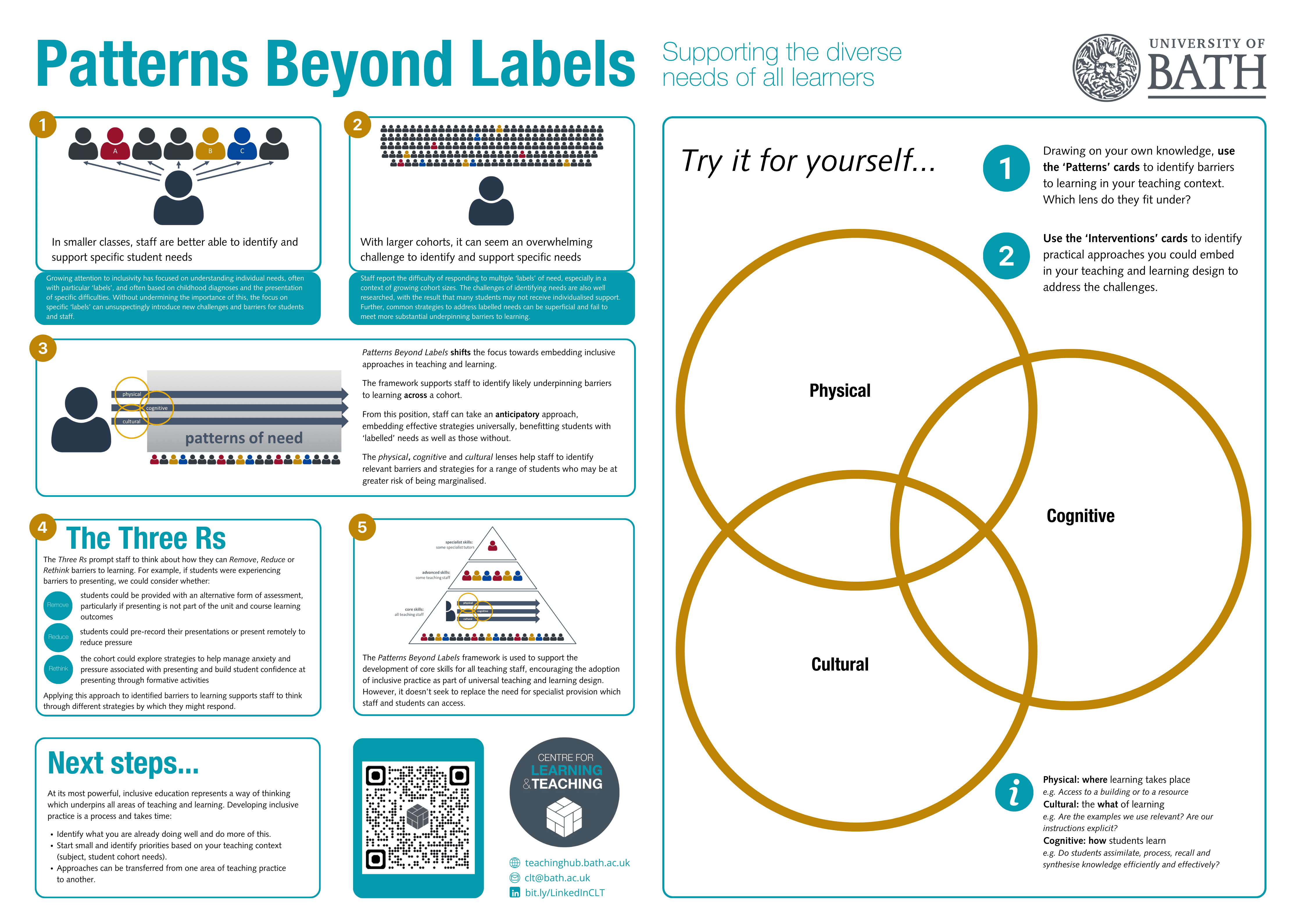Published on: 25/09/2024 · Last updated on: 26/09/2024
Sharing Best Practice: The Universal Design for Learning Staff Development Conference
Before the start of the new academic year, academics and staff from the GW4 alliance – University of Bath, University of Bristol, Cardiff University and University of Exeter – met in Exeter to discuss, collaborate and share experience of using UDL-informed approaches to support inclusive learning and teaching for their students.
What is Universal Design for Learning (UDL)?
Universal Design for Learning (UDL) is a framework to optimise learning and teaching for all. It guides the design of instructional goals, assessments, methods, and materials so that they can meet all learners’ needs. UDL is organised into three principles: Engagement, Representation and Action & Expression. When a variety of options are available to provide multiple means of approaching each principle, barriers are reduced, and access is increased. UDL is especially important in today’s diverse educational landscape, where learners come from various backgrounds and have different needs, including disabilities and cultural differences. To find out more about UDL visit About Universal Design for Learning.

The Conference
With a shared commitment to fostering inclusive education, academics from across the GW4 alliance gathered to share their journeys with UDL and its impact on teaching. At the conference colleagues presented on the three principles – Engagement, Representation and Action & Expression offering case studies and real-world examples of how UDL-informed approaches are being successfully applied across their curriculum. For instance, in case studies from the University of Bristol students could demonstrate their understanding of course material through multiple means of expression, offering them a choice that aligns with their strengths.
The University of Bath’s Momna Hejmadi and Abby Osborne led an engaging presentation and workshop on Curriculum Transformation and the incorporation of Patterns Beyond Labels as a framework that supported the principle of Representation, whilst overall saving staff time in the transformation of their curriculum and lessons. Patterns Beyond Labels helps staff recognise patterns in barriers across all students and provides interventions that benefits the wider cohort.
With pressure on existing support services at universities rapidly increasing, it was exciting to spend time with colleagues across the GW4 discussing and identifying how we can meet the needs of students at the point of teaching design and delivery. Sharing the Patterns Beyond Labels model with colleagues helped us to consider how we can better bridge the gap between the current model of bolt- on provision to implementing UDL principles in a way that is viable and sustainable for busy academics.
– Abby Osborne

Final Thoughts
The conference was a successful meet-up, with colleagues not only sharing ideas on how to make learning, assessment and communication more inclusive, but participants walking away with tangible plans and strategies to embed UDL in their teaching for the new academic year and beyond, fostering a more inclusive and dynamic learning environment for all.
For access to the online poster gallery from the conference and more information on the conference speakers visit UDL Staff Development Conference.